A solar-powered device that can clean up oil spills, the cancer-preventive properties of nipa palm sap, a smart helmet for motorcyclists, and more. These are just a few of the community-driven studies by Filipino students recognized at the Gokongwei Brothers Foundation's Young Scientist Award virtual ceremony on Friday, November 27. A total of 12 students from across the Philippines were recognized for their outstanding scientific research and innovations—each one inspired by a desire to solve the problems faced by their communities.
These “champions of change,” as GBF General Manager Lisa Gokongwei-Cheng referred to them, had studies that earned top awards at the 2020 National Science and Technology Fair organized by the Department of Education. The students also represented the country at the 2020 International Science and Engineering Fair, which was conducted virtually for the first time this year due to the coronavirus pandemic.
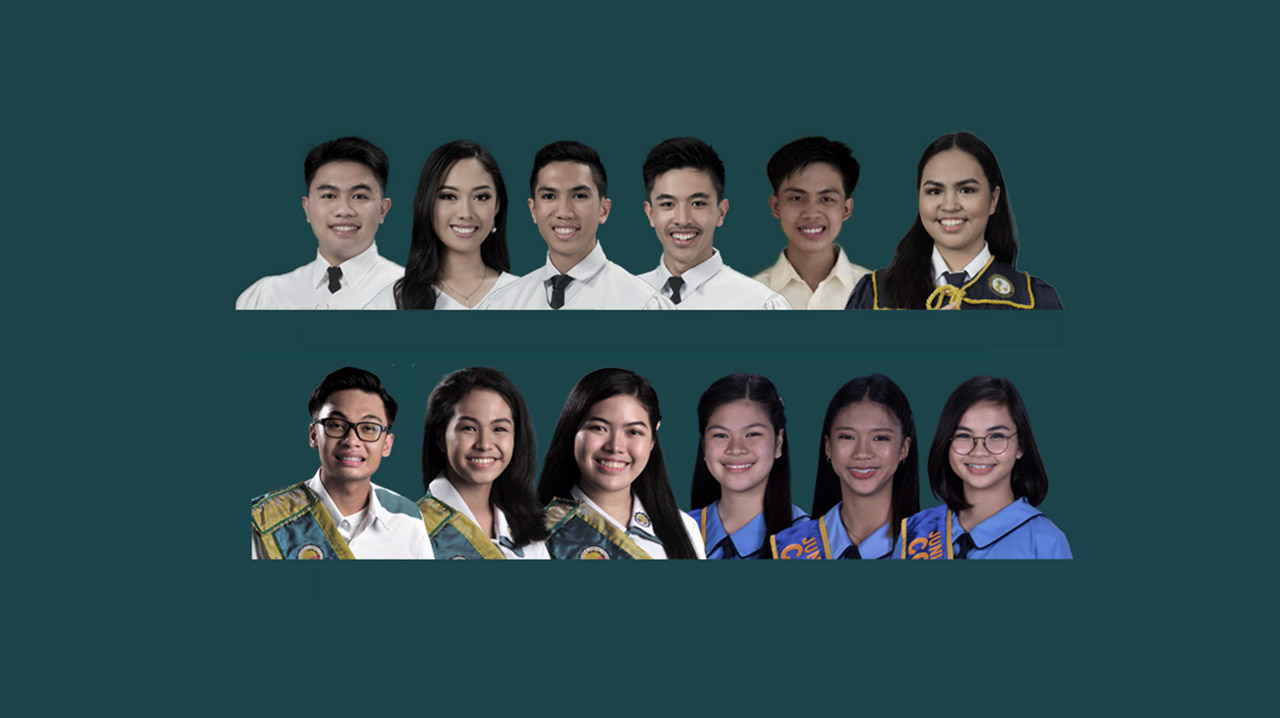
“The future stems from every day that our learners stay curious and seek answers. We at the Gokongwei Brothers Foundation are firm believers that strengthening our STEM [Science, Technology, Engineering, and Mathematics] education is the driving force for attaining sustainable national development. This means Filipinos innovating and establishing new businesses, and Filipino businesses creating jobs for Filipinos. This means making processes more efficient. This means creating lasting solutions to pressing problems in our country,” said Gokongwei-Cheng in her welcome remarks.
The creation of the Young Scientist Awards was “born out of our desire to encourage our Filipino youth to aspire for and achieve excellence in the field of STEM and innovation,” said GBF Executive Director Grace Colet during the virtual event. “If we can inspire the youth to dream and work hard, we will be in effect contributing directly and powerfully towards a better future.”
For the second year running, the foundation committed to support the Young Scientist Awardees and their game-changing studies as they presented their projects at the International Science and Engineering Fair, a global pre-college conference that annually brings in around 2,000 students from 80 countries. Each of the 12 students will also receive college scholarships in a STEM-related field. This is just one of the ways the foundation hopes that these students’ achievements in STEM will not only inspire fellow Filipinos, but also eventually translate to tangible nation-building.
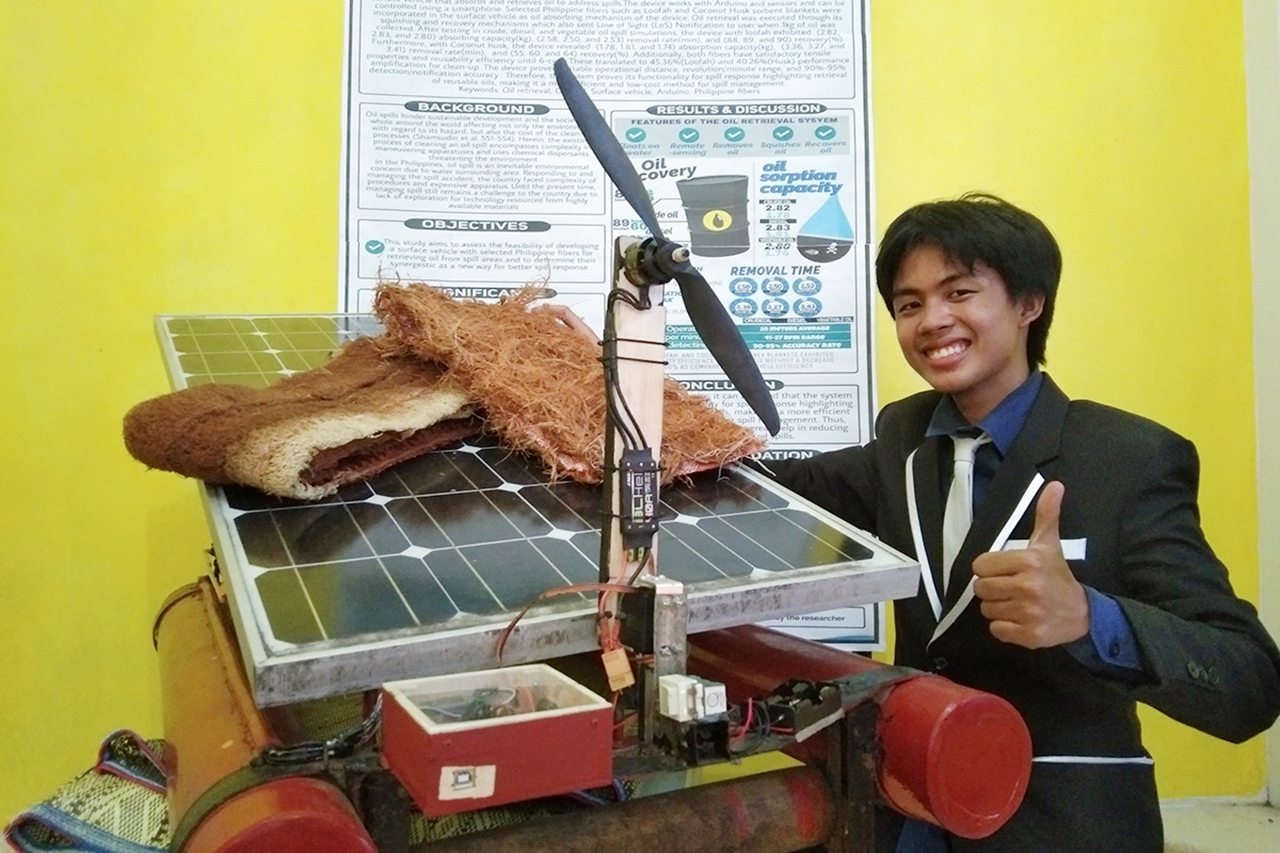
Hosted by veteran journalist Kara David, the YSA conferment ceremony featured inspiring video presentations for each winning science project. The presentation of awardees kicked off with Franklin Razon, who created a solar-powered device to help clean up oil spills using local fibers. A student from Bansud National High School–Regional Science High School for MIMAROPA, Banzon won the top award in NSTF's Robotics and Intelligent Machines Individual Category. His solar-powered device, created with dried patola and coconut fibers, is meant to help clean up oil spills and was inspired by the problems he saw fisherfolk face in his home province of Oriental Mindoro. It is controlled via smartphone and Bluetooth and can retrieve approximately a liter of oil per trip.
Showcasing further innovation when faced with a scarcity of materials, he was able to reuse old PVC pipes to make the device float. Razon worked on the study alone, with guidance from his mentor Melanie Ramos and support from his parents and school. The mental and physical struggles were on another level—but once his device really started to shape up, "the feeling [was] very unexplainable, like [being] on cloud nine. Despite the challenges, you get through all of it and you succeed," he shared during the YSA conferment ceremony.
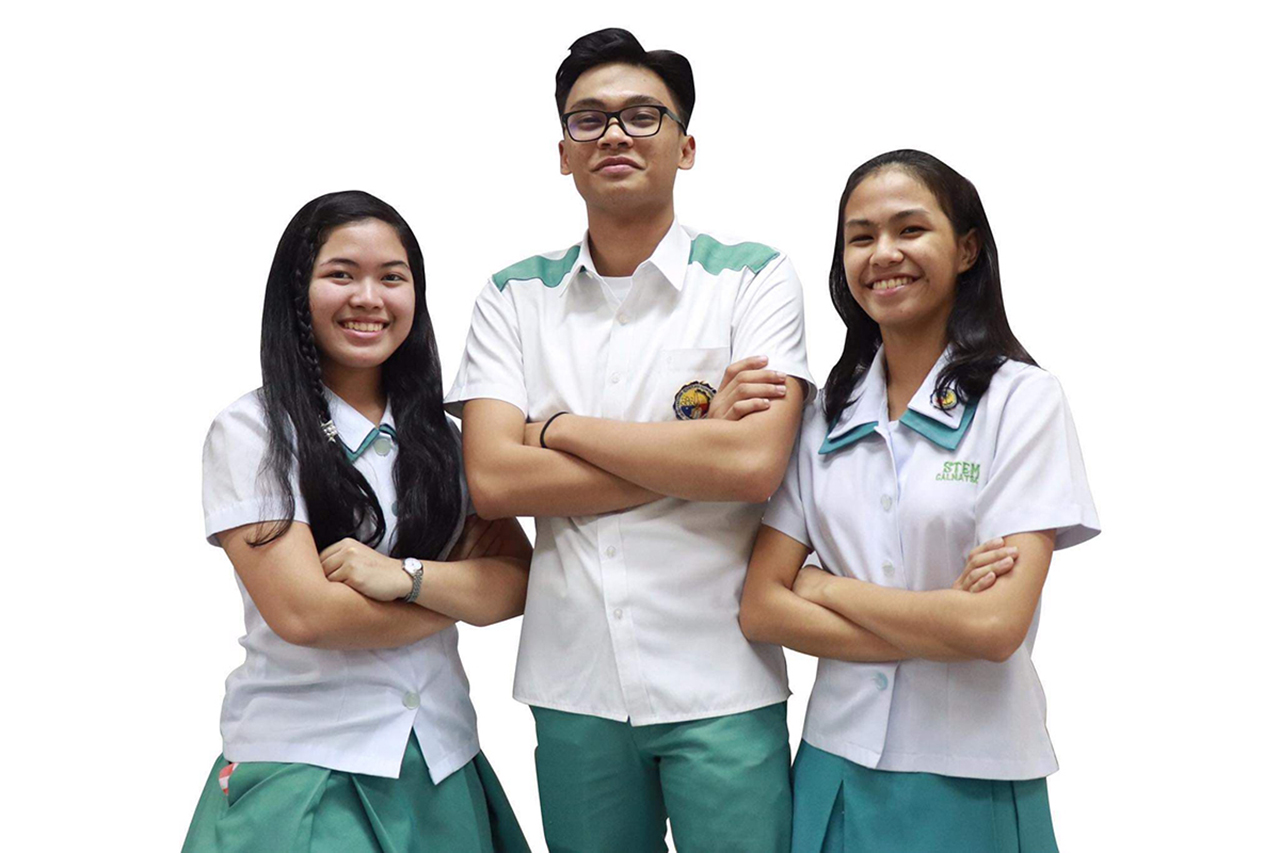
Not to be outdone, three students from the Caloocan National Science and Technology High School, Adoniram Balagtas, Chloe Heather Ellano, and Thea Marie Lumabi, created a “genius” helmet for motorcycle riders. Their prototype is an anti-theft, alcohol and collision-sensing helmet that uses the open-source Arduino software. Mentored by Rex Mendel Capili, they earned top honors for the Intelligent Machines Team Category at the NSTF.
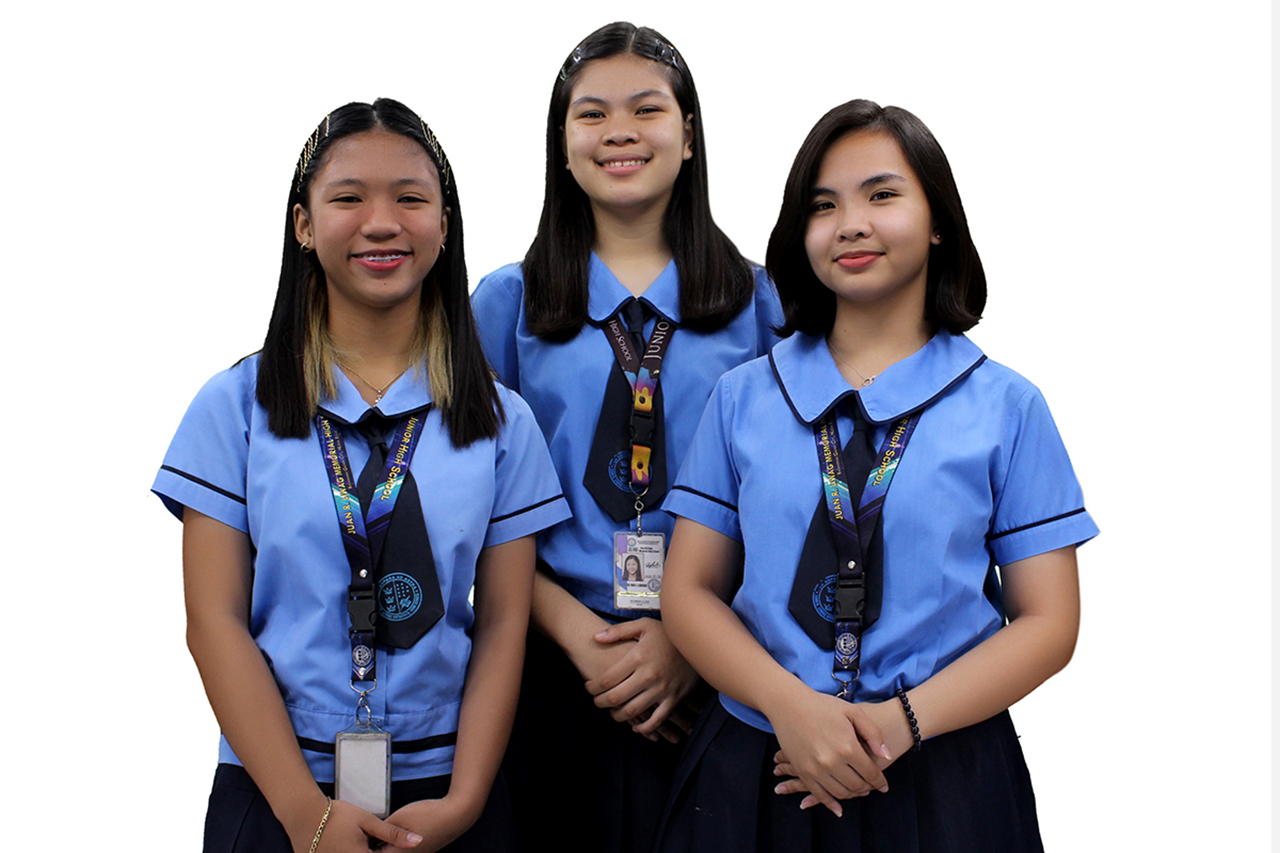
Concerned with the rising cases of alcoholism in society, Arabelle Santos, Jesscel Mae Libiran, and Giuliana Anupol of Juan R. Liwag Memorial High School in Gapan City, Nueva Ecija, found that the takip-kuhol plant—a weed that grows abundantly in their area—could reduce alcohol dependency and mitigate its effects. Their team was mentored by Jerone Mejia and Mary Lorraine Lodoy. Their study, which was tested on fruit flies, won one of the top projects in the Life Science Team Category at the NSTF.
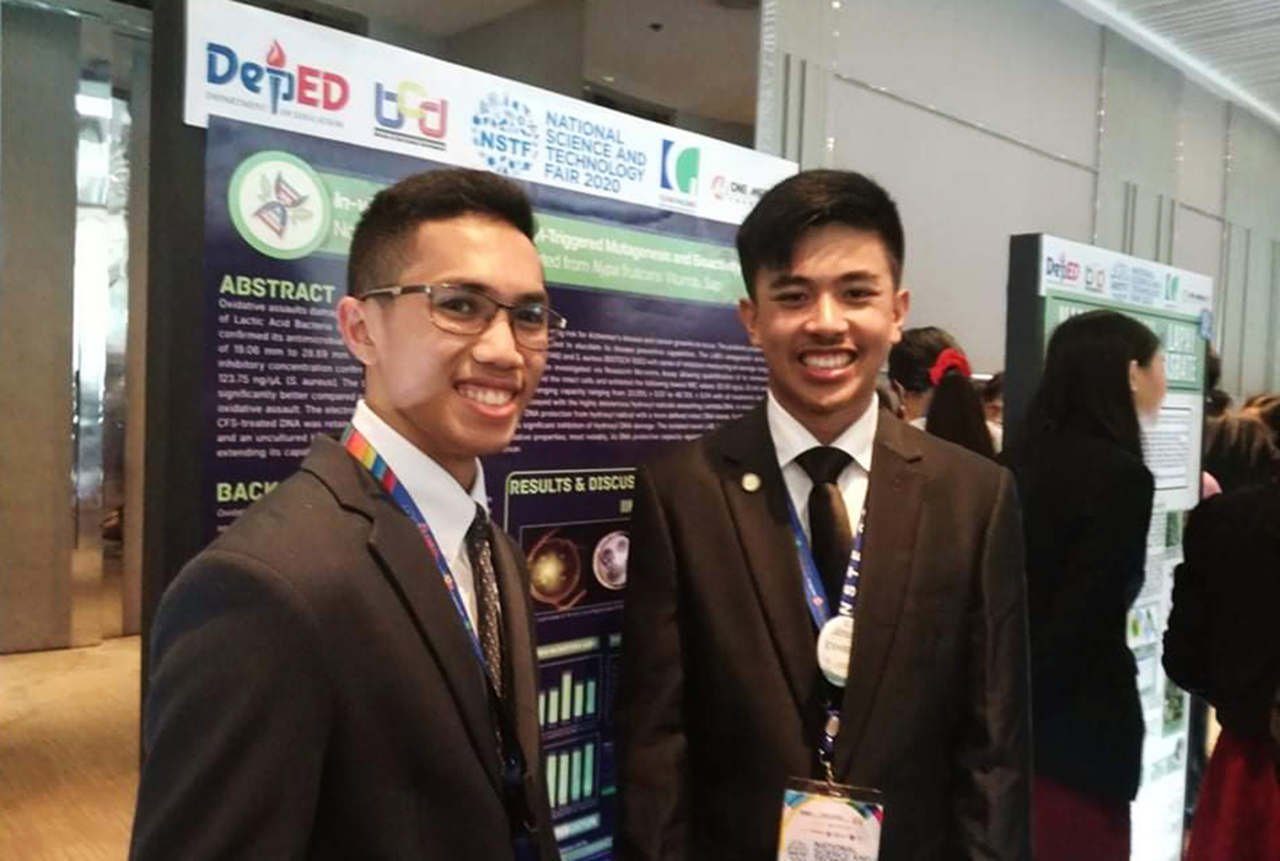
Another plant-based study garnered recognition for the duo of Ray Vincent Pelayo and Gerardo Rafael Tallador from Iloilo National High School. The often-overlooked nipa palm was the focus of their study, which looked into the palm's sap as a potential source of lactic acid bacteria and its preventive properties against the development of cancer and other degenerative diseases. The study was given the top award in the Life Science Team Category at DepEd's NSTF.
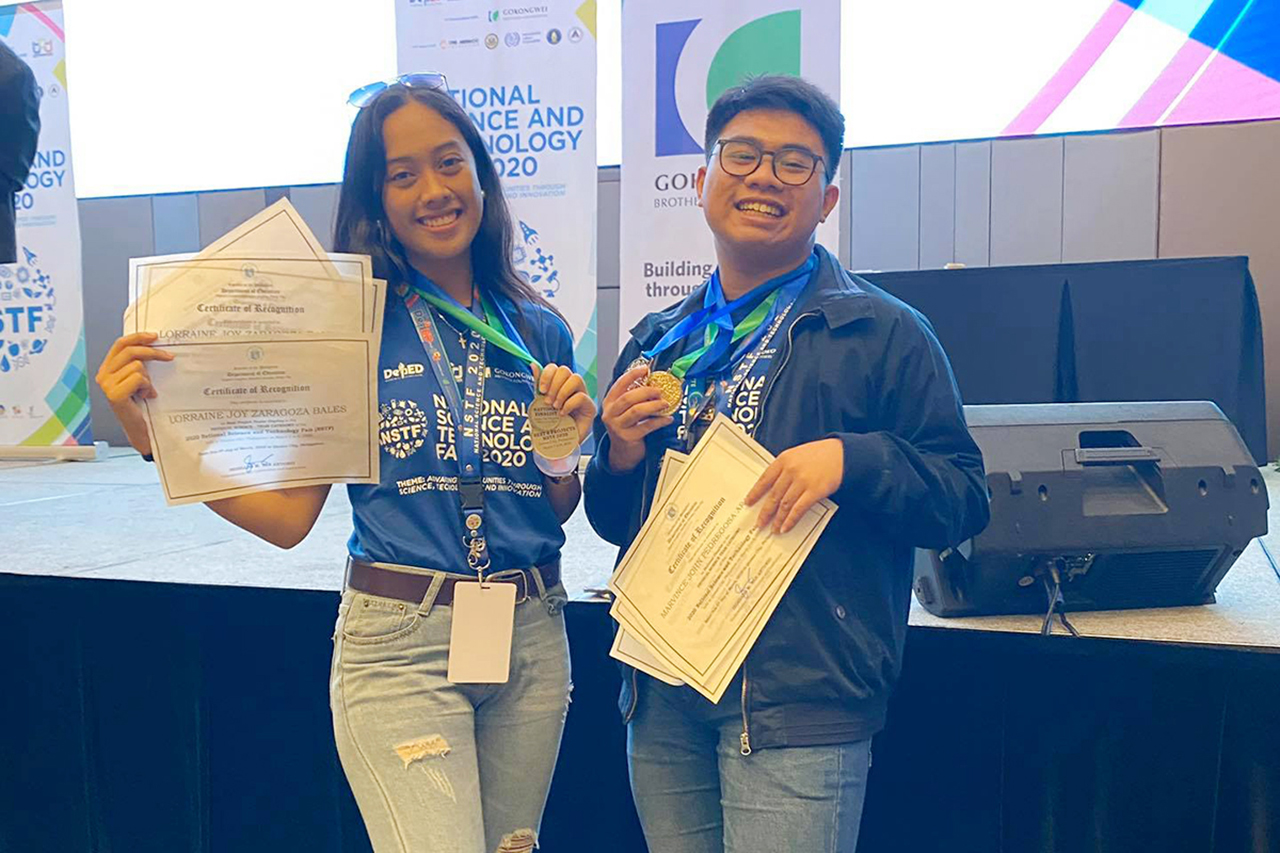
The duo was mentored by Dr. Ronilo V. Aponte, who amazingly mentored another winning team from the same high school. The research of Marvince Araneta and Lorraine Joy Bales also from Iloilo National High School led to the creation of a highly practical device that would help ensure water purity in a more affordable manner. The two created their study as a response to questionable water quality in their communities, and the high cost of water testing. Their prototype won the highest award at the Department of Education’s National Science and Technology Fair in the Physical Science Team Category.
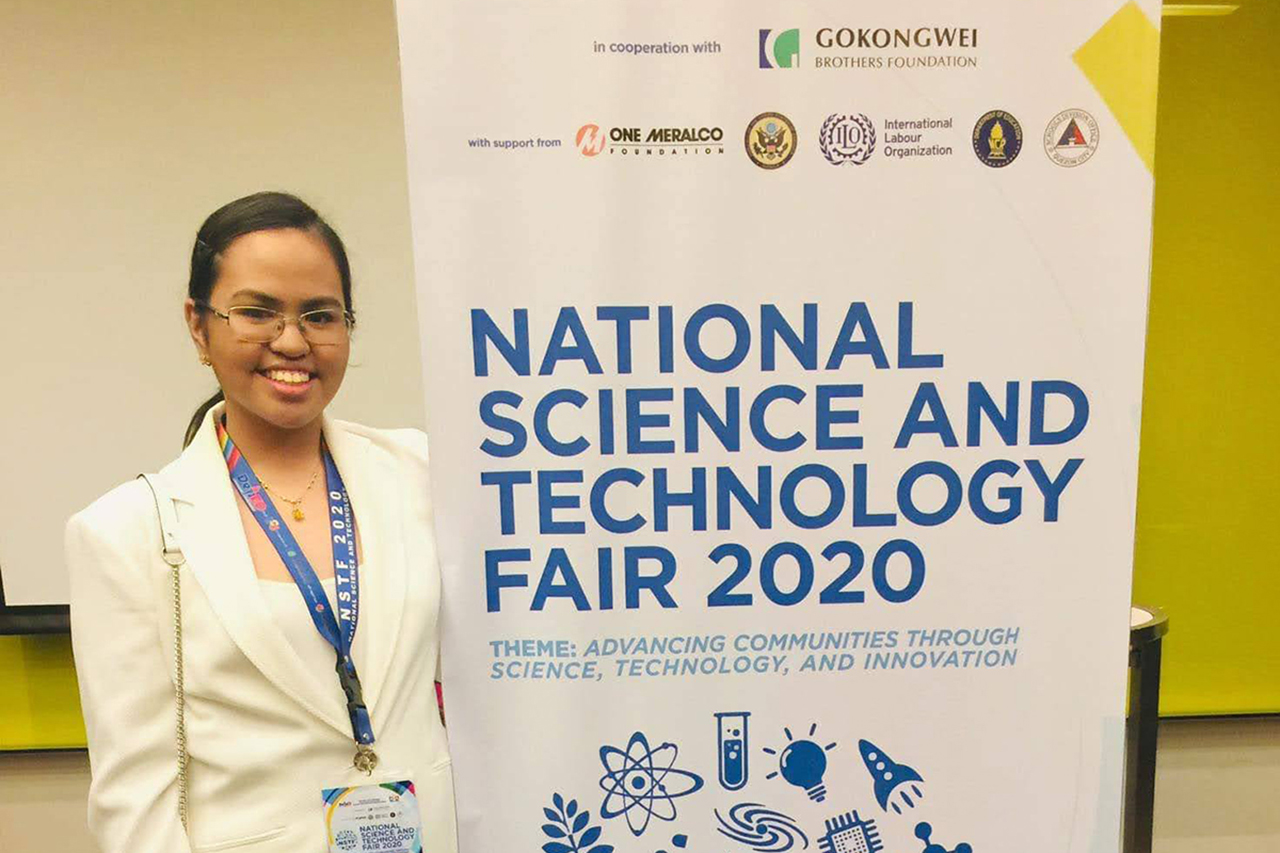
Showing that there’s more than one good way to tackle a significant problem in society, Marian Ledesma of Negros Occidental National Science High School took a magnetic nano-adsorbent from graphite called EDTA-MgO (ethylenediaminetetraacetic acid-magnesium oxide) and used it to remove organic pollutants from water. Through the process of adsorption, pollutants are removed from water by making them stick to the EDTA-MgO particle.The deceptively simple-looking method to purify water won Ledesma the top award in the DepEd NSTF 2020 Physical Science Individual Category. She was mentored by Glaizelle Leonoras.
At the beginning of each of these inspiring studies is, of course, a teacher. The efforts of the men and women who guided the 12 students throughout the research journey were recognized as well during the awards ceremony. In a short video, the winning students heaped praise and thanks on their mentors for their patience, guidance, and dedication.
During the event’s keynote speech, renowned astrophysicist Dr. Reinabelle Reyes, who proved Einstein’s General Theory of Relativity on a cosmic scale, provided the winners with words of wisdom and further encouragement to pursue even greater achievements.
Earlier in the program, Gokongwei-Cheng noted that “recognizing young minds’ contributions to science, innovation, and research is of utmost importance. Contributing to a body of knowledge requires no age.” This was easily proven by the studies and prototypes developed for the NTSF, which were all made by Filipinos no older than 20 years of age. Each of them is well aware of the challenges STEM education has today—and even more so of its benefits.
"What's so special about research, you might ask?" said Bales of Iloilo National High School during her speech for the GBF program. Answering her own question, "We do research in hopes of helping our communities by providing tangible solutions to existing problems," she said. Each of the studies awarded were inspired by a need that the students saw in their own communities, a need they worked hard to help solve.
"The world needs STEM-inclined people now more than ever," continued Bales, pointing out the many challenges we face today and called on students and folks everywhere, that like her, could make a positive impact. "We can make a significant contribution to this world through science—and research."
Upon enrolment to a STEM course in college, the honorees will be admitted to the GBF STEM Scholarship for Excellence Program for GBF YSA. Out of this year's 12 awardees, eight are already enjoying their GBF STEM college scholarship while the rest are still in senior high school. Further to its commitment to strengthening the country's stronghold in STEM, GBF currently supports 352 STEM college scholars in over 70 universities nationwide. — Mia Rodriguez
For more information on the Gokongwei Brothers Foundation, visit gokongweibrothersfoundation.org


